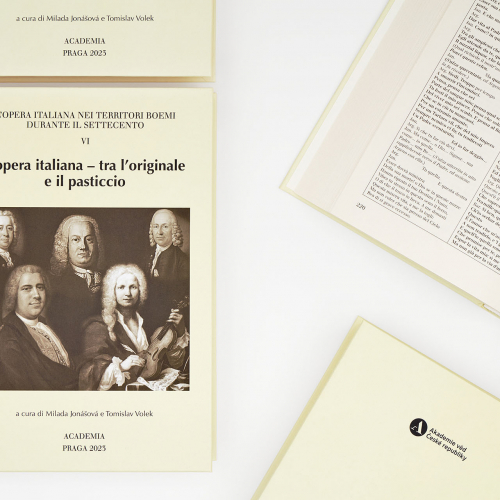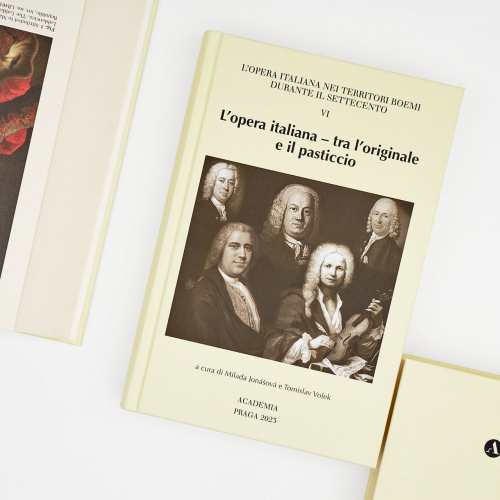

Milada Jonášová and Tomislav Volek
The publication presents studies about a phenomenon that was practised very frequently in 18th-century Italian opera (and also in its local “branch” in Prague), and which was known by the name pasticcio. This was an opera that was created by piecing together successful arias from operas that had already been staged. This task was usually undertaken by the impresarios of local operatic societies themselves. At a time when the concept of copyright did not yet exist, this practice did not give rise to any disputes. For theatrical entrepreneurs this practice had the great advantage that they did not have to pay any fees to composers or librettists and were still able to offer their audiences a new operatic production. The present publication, which is the sixth volume in our series L’opera italiana nei territori boemi durante il Settecento, contains studies by researchers from Italy, Germany, Poland, and the Czech Republic, which were intended to be presented as papers at the annual music conference in Český Krumlov in 2020 as part of the Festival of Baroque Art held there. Due to the preventive measures introduced during the Covid pandemic, the conference was cancelled, but the papers that were prepared by the speakers invited to take part have been included in the present publication
L’opera italiana nei territori boemi durante il Settecento VI. Prague: Academia, 2023, 360 s.
This website uses cookies to improve your experience while you navigate through the website. Out of these cookies, the cookies that are categorised as necessary are stored on your browser as they are essential for the working of basic functionalities of the website. We also use third-party cookies that help us analyse and understand how you use this website. These cookies will be stored in your browser only with your consent. You also have the option to opt-out of these cookies. But opting out of some of these cookies may have an effect on your browsing experience.
Necessary cookies are absolutely essential for the website to function properly. These cookies ensure basic functionalities and security features of the website, anonymously.
Analytical cookies are used to understand how visitors interact with the website. These cookies help provide information on metrics the number of visitors, bounce rate, traffic source, etc.
Performance cookies are used to understand and analyse the key performance indexes of the website which helps in delivering a better user experience for the visitors.
Advertisement cookies are used to provide visitors with relevant ads and marketing campaigns. These cookies track visitors across websites and collect information to provide customised ads.


